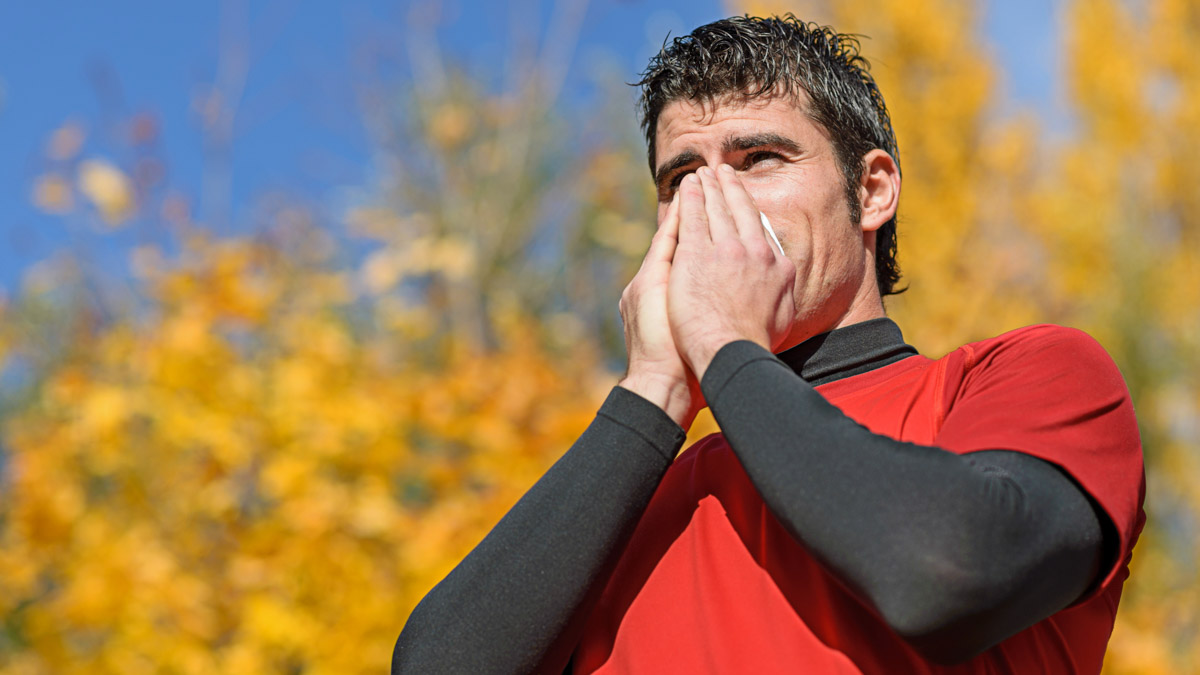While COVID restrictions have eased, there continue to be areas of hot spots where cases are spiking or new variants emerge. And though we’re not in peak cold or flu season, it won’t be too long until these get into full swing. With this in mind, let’s take a look at several proven, medication-free strategies for supporting healthy immune function so you can maintain your overall well-being and keep up the continuity of your training and racing.
1. Sleep Longer and Better
You’re probably well aware of how sleep impacts your recovery from today’s session and prepares you to perform well tomorrow. But did you also know that it’s an essential component of regulating your immune function?
Researchers from Carnegie Mellon University, Children’s Hospital of Pittsburgh, and the University of Virginia Health Sciences Center investigated the link between sleep duration and quality and the risk of catching a common cold. Publishing their results in the Archives of Internal Medicine, they concluded that people who slept less than seven hours were almost three times more susceptible than those who got eight hours or more, while those with low sleep efficiency (i.e., not staying asleep for most of the time they were in bed) were five and a half times more likely to get sick.
The risk of poor quality sleep can be mitigated if you sort out your stimulant-sedative cycle, such as by cutting off your caffeine consumption by mid-afternoon and keeping your alcohol intake to two drinks or less (preferably consumed with food earlier in the evening). Exposing your eyes to outdoor sunlight earlier in the day while restricting bright lights at night will help ensure melatonin and neurotransmitters are released at the right times to promote a good night’s rest. And keeping your bedroom cool (65 to 70 degrees), dark, and quiet should help you fall asleep faster and limit nighttime disturbances that can negatively impact sleep duration and efficiency.
2. Combine Endurance and Strength Training
Over the past few years, there has been a lot of hype around the potential for overtraining to suppress immunity. This may have some merit if you’re crushing yourself with far too much volume or intensity all the time. Yet there is a significant body of evidence to suggest that a well-balanced program does the opposite and actually elevates various facets of the immune response.
A group of Brazilian researchers asked 18 female and 15 male runners to complete a fatiguing, submaximal bout of aerobic exercise at 77% to 80% of their VO2 max. They collected blood samples before, during, and after the test to see how the participants’ immune systems responded to the stimulus. The results were quite clear.
They found that the number of leukocytes in the bloodstream (i.e., white blood cells that consume bacteria and fungi) increased. The number of neutrophils, which kill microbes and help the innate immune system decide how to best respond to infection, also went up. So did the count of lymphocytes, of which there are two types: T cells that destroy your body’s own cells that have been overrun by a virus and B cells that create antibodies to combat toxins, bacteria, and viruses. The authors stated that while innate and adaptive immune responses differ between males and females, “the same aerobic physical exercise can alter immunological parameters in women and men.”
There’s also an increasing amount of research to suggest that strength training has both short-term and cumulative effects on immune function. A paper published in the Journal of Immunology Research looked at physiological and inflammatory responses to a strength training session that emphasized eccentric contraction during three lower body exercises. Bloodwork showed that this short workout prompted an increase in neutrophils, similar to the endurance study. The activity of lymphocytes also went up post-exercise, as did the level of monocytes, which are involved in immunovigilance (keeping a lookout for viruses) and change into dendritic cells or macrophages when your immune system detects invading germs to neutralize the threat.
3. Prioritize Protein Intake
We know that getting adequate protein is essential for your muscles to repair the damage done by training and racing, but it’s also an underrated nutritional weapon that’s used in the fight against viruses and other illnesses. Researchers from Texas A&M University stated that amino acids (aka, the building blocks of protein) are vital for producing antibodies and cytokines that fight back against infection, modulating the deployment of immune system Special Forces like lymphocytes and NK cells, and expressing genes central to immune function.
The authors highlighted arginine, glutamine, and cysteine — all of which are found in complete animal protein sources and those with a combo of plant sources (like pea and rice) that contain all nine essential aminos — as being particularly beneficial. Another study published in Nutrients seconded the glutamine recommendation, stating that increasing intake of this amino acid can help produce enough antibodies to keep viruses, bacterial infections, and more at bay.
It would be irresponsible to suggest that there are any measures that will prevent you from ever getting sick again. But if you start consistently getting longer and higher-quality sleep, balance your training between aerobic endurance work and strength/power sessions (without overdoing either), and ensure that plenty of protein is part of your balanced diet, you could increase your chances of staying healthy and avoid illness-related interruptions in your training and racing schedule.
References
Cohen, S. et al. (2009, January 12). Sleep Habits and Susceptibility to the Common Cold. Retrieved from https://jamanetwork.com/journals/jamainternalmedicine/fullarticle/414701
Cruzat, V. et al. (2018, October 23). Glutamine: Metabolism and Immune Function, Supplementation and Clinical Translation. Retrieved from https://www.ncbi.nlm.nih.gov/pmc/articles/PMC6266414/
Fortunato, A.K. et al. (2018, June 26). Strength Training Session Induces Important Changes on Physiological, Immunological, and Inflammatory Biomarkers. Retrieved from https://pubmed.ncbi.nlm.nih.gov/30046617/
Li, P. et al. (2007, April 3). Amino acids and immune function. Retrieved from https://pubmed.ncbi.nlm.nih.gov/17403271/
Lobo, L.F. et al. (2022, June 8). A Single Bout of Fatiguing Aerobic Exercise Induces Similar Pronounced Immunological Responses in Both Sexes. Retrieved from https://pubmed.ncbi.nlm.nih.gov/35755444/









